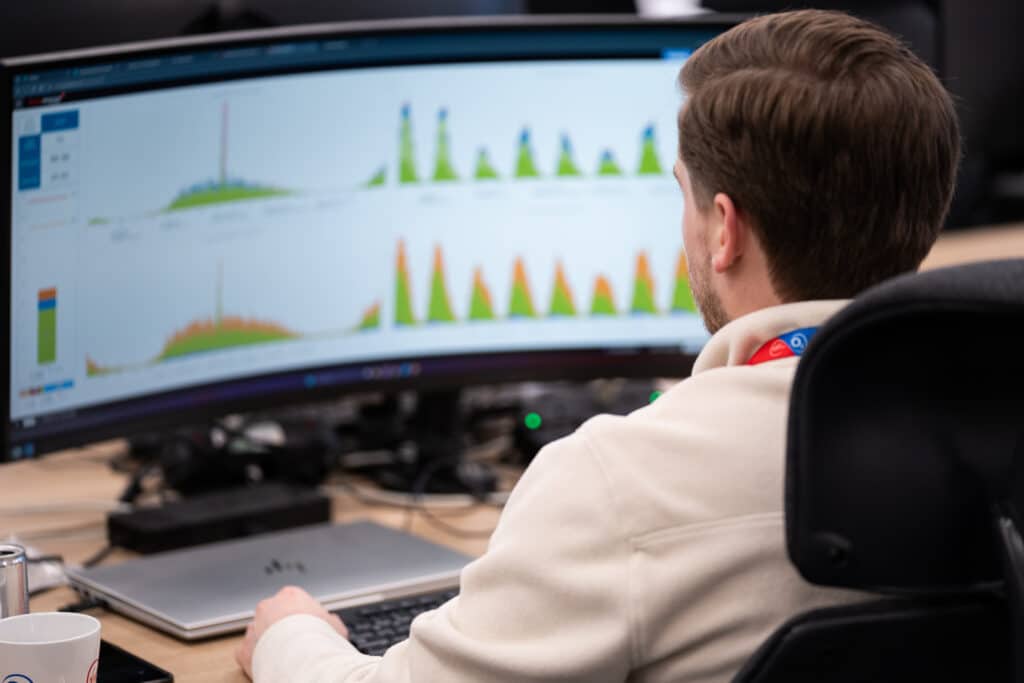From air quality to potholes: government-funded trials explore potential for ‘smarter’ towns
- Anonymous data from the O2 mobile phone network has become part of the Thames Valley Berkshire Live Lab: a project to help local authorities plan improvements to air quality, public health, roads and energy infrastructure
- The government-funded trials will show how technology can enable better planning, ‘smarter’ towns and a healthier environment for Berkshire residents and businesses
- The trials are using crowd movement data collected from anonymised, aggregated O2 mobile connections – as well as anonymised data from air quality sensors and even cameras on refuse trucks – to give councils a more accurate picture of issues like potholes and traffic pollution
- Led by Reading Borough council and supported by six local authorities, O2 is working alongside four other technology partners and the University of Reading on the projects as part of the ADEPT SMART Places Live Labs Programme
Anonymised data from the O2 mobile phone network is being used as part of a series of new government-funded trials to help Thames Valley local authorities plan improvements to air quality, public health, road surfaces, traffic flow and energy infrastructure.
Funded by the Department for Transport through the £22.9m ADEPT SMART Places Live Labs Programme, the Thames Valley Berkshire Live Lab trials are investigating how technology could transform local places and improve the way people live and work in Berkshire.
Led by Reading Borough council and supported by six local authorities, the Thames Valley Berkshire Live Lab includes five trials that will use technology to help shape future improvements to issues like potholes, traffic congestion, pollution and other health risks. In a model set to help local authorities plan smarter towns, the trials combine movement data collected from anonymised, aggregated O2 mobile connections with anonymised information from other sources, including air quality sensors and cameras mounted on refuse trucks.
‘Smarter’ towns, developed through data
As mobile devices connect to different masts, they create data footprints – and O2 Motion is a service that can anonymise, aggregate and extrapolate these footprints to help local authorities gain a picture of where and how people travel around the local area. The Thames Valley Berkshire Live Lab is taking this data and overlaying it with demographic and behavioural insights. This can help local authorities understand more about crowd movement trends and profiles, and ultimately shape future town planning. Data insights from O2 Motion never allow identification or mapping of individuals and operate within strict privacy guidelines.
Sergio Budkin, Director of Market Development at Virgin Media O2, says: “O2 Motion is all about using data to improve people’s experiences, so we are particularly proud to be a part of the Thames Valley Berkshire Live Lab – looking at the potential of tech to map out the smarter towns of the future.
“Anonymised, aggregated data about how we move around can help councils pinpoint the most congested transport routes, and show exactly which roads need improving, exposure to dangerous air pollution, and how residents can make greener choices. And it allows local authorities to make informed improvements, cut carbon emissions and make life better for residents and businesses alike.”
The Thames Valley Berkshire Live Lab projects span the following areas:
- Air Quality: O2 has introduced software company GPC Systems to combine anonymised, aggregated O2 Motion movement data with findings from Siemens air quality monitors to measure air quality and public exposure to harmful pollutants. This provides valuable insight into how many people are affected, for how long, and on what types of journeys. The project will then look at encouraging healthier and more sustainable ways of getting around
- Road Surfaces: GPC will use a combination of anonymised crowd movement data from O2 Motion, road usage information from Siemens, and analysis from 3D cameras mounted on refuse trucks to map the most heavily used local routes with the worst road surface quality. This will help local authorities prioritise improvements (e.g. fixing potholes)
- Traffic Flow: Siemens will use O2 Motion data to gain a real-time picture of traffic and exploring new, tech-driven ways of easing it
- Health: Space Syntax will analyse O2 Motion crowd movement data alongside road usage and air quality data from Siemens to explore how town layouts impact social issues and public health risks (including loneliness, frailty and obesity). This means local authorities can see where the issues are now, and where public health costs are likely to come from in the future
- Energy: Smarter Grid Solutions will help create a dynamic energy management platform that includes energy for local buildings. O2 has also brought onboard smart charging specialist ev.energy, which has partnered with Hubject, to provide insights on charging and usage behaviours for electric vehicles. This will help local authorities get a clearer understanding of current and future trends around electric vehicles – such as ownership, usage and demands on public infrastructure.
O2 joins Shoothill, Siemens, Stantec and Smarter Grid Solutions as a technology partner for the Thames Valley Berkshire Live Lab, which is delivered with support from the Royal Borough of Windsor and Maidenhead, Slough Borough Council, Wokingham Borough Council, West Berkshire Council, Bracknell Forest Council and Reading Borough Council. Research input is also being provided by The University of Reading.
Giles Perkins, Live Labs Programme Director, says: “The Thames Valley Live Lab demonstrates the potential benefits that aggregating multiple sources of data, from transport, highways and beyond can bring in terms of making a real difference to our communities and places.”
After running an extensive pitching process with submissions from more than 50 expert organisations, O2 has also brought in five cutting-edge technology and analytics partners to help with project delivery – including GPC Systems, ev.energy, Hubject, Space Syntax and BetterPoints.
ADEPT represents local authority, county, unitary and metropolitan Directors. The ADEPT SMART Places Live Labs programme is a two-year £22.9 million project funded by the Department for Transport and supported by project partners SNC-Lavalin’s Atkins business, EY, Kier, O2, Ringway and WSP. Nine local authorities are working on projects to introduce digital innovation across SMART mobility, transport, highways, maintenance, data, energy and communications. Live Labs is part of ADEPT’s SMART Places programme to support the use of digital technology in place-based services.
-ENDS-
About O2 Motion
O2 Motion is a service that uses anonymised and aggregated data created by the mobile phone network to offer insight into movement trends across the UK. As mobile devices connect to different masts, they create data footprints which O2 can then anonymise, aggregate and extrapolate in order to gain a picture of how people are travelling, when they make journeys and which areas they visit.
O2 Motion is based on connection data between a device and the phone mast only. It does not collect GPS data and the service isn’t used for ‘contact tracing’.
About ADEPT Smart Places Live Labs programme
The ADEPT SMART Places Programme is a five-year project examining and developing innovation to enable the adoption of innovative and digital technology across the local highway network. The initial research report ‘Digital Innovation: The route to the highways systems of the future’ was published in October 2017. In January 2019, ADEPT secured £22.9m funding from the Department of Transport for Phase 3 of the programme, which will see the development of eight individual Live Labs projects led by local authorities with university and private sector partners. The Live Labs are piloting innovation across SMART communications, transport, highways maintenance, energy, materials and mobility. The ADEPT SMART Places programme has been developed with partners: SNC-Lavalin’s Atkins business, EY, Kier, O2, Ringway and WSP. consultations and enquiries, and promoting initiatives and research aimed at influencing Government policy. For more information on Live Labs, please visit the website: www.adeptnet.org.uk/livelabs.
About ADEPT
The Association of Directors of Environment, Economy, Planning & Transport (ADEPT) represents ‘Directors of Place’ from county, unitary, metropolitan and combined authorities along with directors of local enterprise partnerships, sub-national transport bodies and corporate partners drawn from key service sectors. ADEPT members are at the very heart of maximising clean sustainable growth, delivering the projects that are fundamental to creating more resilient communities, economies and infrastructure. Over 14.7 million households in England – and two thirds of the population – rely on services provided by ADEPT members. These services include housing, environmental and regulatory services, planning, economic development, culture and highways and transport. The Association represents members’ interests by proactively engaging central Government on emerging policy & issues, responding to consultations and enquiries, and promoting initiatives and research aimed at influencing Government policy. For more information on ADEPT please visit the website: www.adeptnet.org.uk.
press enquiries
press enquiries







